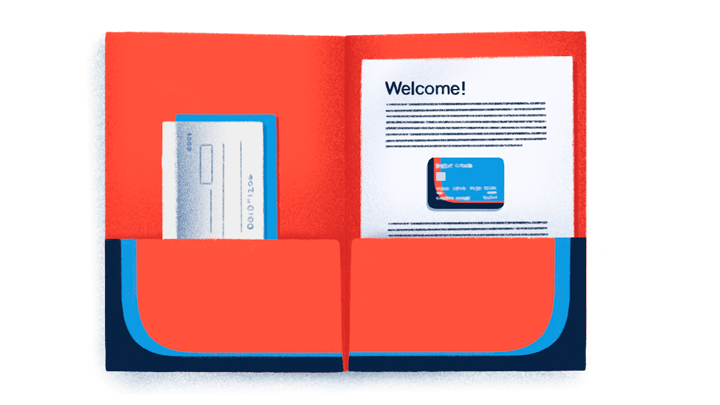
Opening an Account
It’s best to keep your money in an account at a bank or credit union.
You probably keep your money in a jar, plastic bag, or the floor of your room. But these aren’t exactly the safest places to store your hard-earned cash. Keeping your money at a bank or credit union is easy and safe, and you can view your account totals online.
Another benefit of opening an account is that your money can grow with interest. Basically, a financial institution pays you a percentage of your total balance just for keeping money in your account. This means that your money is growing little by little without you having to do a thing.
You'll need to have a joint account or custodial account with a parent or guardian until you become an adult, but you can use this account to prepare you for complete control later. And you may be able to get a debit card. When you buy things with the card, the amount will automatically be subtracted from your account. In other words, you won’t have to worry about carrying around cash, you’ll simply need to be aware of how much is available in your account.

Banks and credit unions offer different types of accounts to meet different needs. Some of the most common account types include:
- Checking Account: With this account, you can spend money directly with a debit card or check. You can also make withdrawals if you need cash.
- Savings Account: This account (surprise surprise) is all about saving. Savings accounts offer interest. You can’t spend money from this account directly, but you can transfer funds to another account or visit a branch or ATM to withdraw cash.
- Money Market Account: These are like a mix between a savings account and a checking account. They are interest and some checking options.
- CD (Certificate of Deposit) : A CD is a long term savings option that offers higher interest rates than a regular savings account. In exchange for those higher interest rates, you agree to leave the money in the bank or credit union for a certain amount of time, usually a few years.
Opening an account at a bank or credit union is easy. You’ll usually need some money to put in, a parent or guardian, and an ID (such as a social security card or birth certificate). Some banks or credit unions let you sign up online but you may prefer to go into a branch so you can talk to the tellers. They can give you tips for how to get the most out of your new account and you can ask them questions. You can also choose to have part or all of your paycheck deposited directly into your account. This means you will have access to your money right away.
Your money is safe in a financial institution because the government insures your money. The FDIC (Federal Deposit Insurance Corp) and the NCUA (National Credit Union Administration) make sure that up to $250,000 per account will be safe—that’s a lot of cash! Basically, the government makes sure you will get your money back even if there’s a natural disaster, a bank robber, or just about anything else you can think of.
Neither Banzai nor its sponsoring partners make any warranties or representations as to the accuracy, applicability, completeness, or suitability for any particular purpose of the information contained herein. Banzai and its sponsoring partners expressly disclaim any liability arising from the use or misuse of these materials and, by visiting this site, you agree to release Banzai and its sponsoring partners from any such liability. Do not rely upon the information provided in this content when making decisions regarding financial or legal matters without first consulting with a qualified, licensed professional.